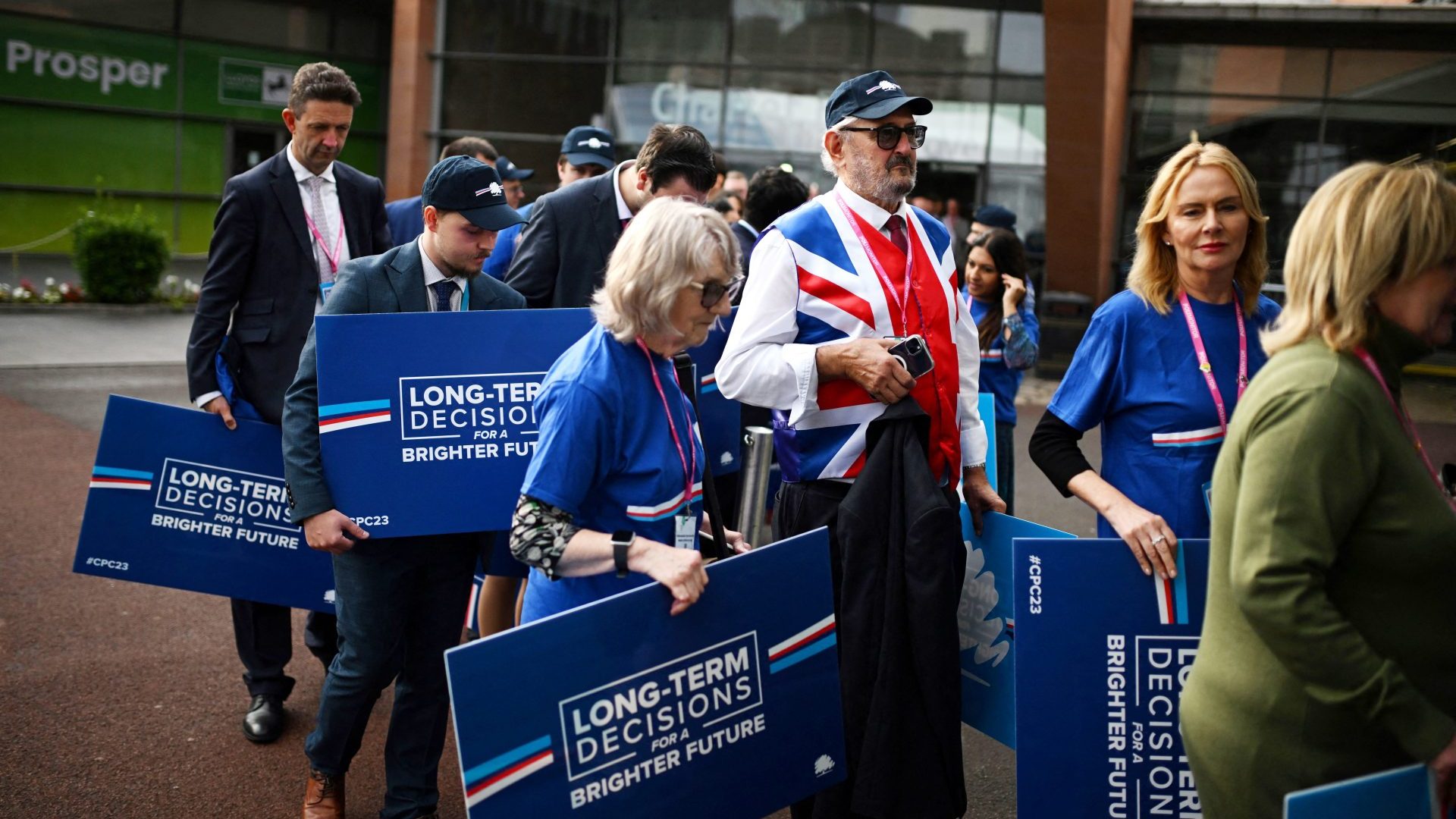I have, I realised the other week, now attended 19 party conferences. I’ve spent days with Tories and evenings with Labour; been on the beach with Lib Dems and for a dance with Greens. I’d try to calculate the number of hours I have spent away from home and stuck in airless rooms drinking warm wine, but I fear it would only depress me.
I have, as you can imagine, a number of memories from them – quite a lot of them good, a solid handful of them bad, a majority involving some form of horrific hangover. Still, there are only two conferences that made me feel unwelcome, in a very specific way.
The first was Theresa May’s “citizens of nowhere” speech, back in 2016. I was there in the conference hall, and it felt really weird. Was she talking about me? It was hard not to take it personally, as both a first- and second-generation immigrant.
The second one, oddly, was this year’s Conservative conference. I’m not sure I could tell you why it hit me in the way that it did; Boris-era gatherings were always coarser, but somehow this one is the one that got to me.
The mood was jovial and everyone was pretty chipper, which was slightly odd given how badly the party is doing, and how doomed it seems to everyone but them. Everyone pleasantly drank and mingled, while on the main stage and in the fringes people talked, again and again, about immigration.
Suella Braverman, the home secretary, spoke of a “hurricane” of immigrants heading for Britain. Backbencher Tom Hunt said it was “not xenophobic” to “not want to feel like you’re living in a foreign country” when walking down the high street. Various rising stars and assorted cranks talked about the need to bring down the number of people moving here. It felt relentless.
For the first time in a long time, I struggled not to take it personally, like I did seven years ago. I am not from here and I moved to Britain as an adult; my mother is not from France and moved from Morocco as an adult.
Of course, I’m not the person they’re talking about when they complain about immigrants; I came here legally, I look white and didn’t take on my family’s Muslim faith. My English is flawless and I have a good career. I’m fine; I’m one of the good ones, allowed to have a natter and a glass of fizz or seven in the conference centre.
Still, I felt uncomfortable, because I can’t guarantee that I will always have those things. My career is good but it is precarious; what happens if I somehow lose it all, if I fall between the cracks and end up unemployed, on the dole, using up some of Britain’s precious social housing?
Will I still be one of the shiny migrants that prove that Britain is the best place in the world, or will I become a burden on the system? What if my body fails me and I require endless NHS care and treatment? Will I become one of those people they talk about in their speeches?
Already, when I tweet about the rent of my London flat being sky-high, trolls like to remind me that foreigners like me are the reason why the capital has become inaccessible to many. On the internet and at party conferences, I am not able to go about my life without being reminded of the fact that I am different, and that luck is, so far, the only reason I’m getting away with it.
I think this year was different precisely because I have been here for so long, and have been covering British politics for so many years. Will I ever stop feeling out of place? I suppose you could argue that it is a good thing, and that I should pride myself on being an outsider, given what the inside looks like these days.
Really, I’m torn; a desire to belong is the most human feeling there is, and I should be able to do my job without getting this odd taste at the back of my throat. I don’t think it’s too much to ask for, but then again, perhaps I should just get used to it, once and for all. Being an immigrant is a high-wire act; sometimes you look down and your heart skips a beat, but you’ve just got to keep going.




